Microbiologists have come a long way since the earlier days when they primarily worked in laboratory research settings. With our increased understanding of microbes’ function in our world, microbiologists now operate in a range of settings, including food production, environmental science, medicine, and basic research. They hold positions ranging from Biosafety Officers to Professors in hospitals, universities, commercial enterprises, non-profit organizations, and government agencies.
A career in microbiology can begin with as little as an Associate Degree (A.S.), but those with a Bachelor’s, Master’s, or Doctorate degree can enjoy higher salaries and better job prospects. Microbiologists with a medical doctorate (M.D.) or a doctorate of philosophy (Ph.D.) can enjoy some of the most exciting and fulfilling careers in the field.
Average Salary For A Microbiologist
Microbiologists’ salaries can vary greatly depending on their education, industry of work, and level of experience. Microbiologists in India can expect to earn salaries ranging from INR 3,00,000 to INR 12,00,000 per year, depending on their education, industry, and experience. Entry-level salaries for microbiologists can start at around INR 3,00,000 per year, while experienced microbiologists can earn well over INR 12,00,000 per year. The median salary for microbiologists in India is around INR 6,00,000 per year, making it a lucrative and rewarding career choice.
Roles & Responsibilities of a Microbiologist
Microbiologists play a vital role in the study of microorganisms and their effects on living organisms and the environment. They work in a variety of settings and have a range of responsibilities.
Research
Microbiology researchers conduct experiments to answer scientific questions and make new discoveries. They work to find solutions to problems such as how to use bacteria to clean up pollution, which bacteria contribute to human health, and how to prevent food from going bad. The following tasks are considered research in microbiology:
- Composing submissions for grant money or experimental approval
- Experimentation design and execution
- Analyzing data and presenting findings at scientific conferences
Microbiology researchers work in settings such as colleges and universities, government agencies, commercial businesses, and non-profit organizations. They may direct a lab or research group and mentor graduate students, postdoctoral fellows, and others who work in their labs. Professional titles in microbiology research include laboratory technicians, research associates, laboratory managers, research scientists, professors (colleges and universities), head scientists (private enterprises), and principal investigators (government labs, non-profit organizations).
Teaching
Microbiology educators teach students in a variety of settings. They create classes, guide students, conduct classes, supervise laboratory activities, and write and mark tests. Professors, lecturers, and laboratory instructors are common at colleges and universities. Professors undertake both research and teaching, while lecturers and laboratory instructors focus on educating students. Microbiology educators may also guest teach some aspects of courses for professional students in schools that offer degrees in nursing, dentistry, pharmacy, or medicine.
Diagnostics
Diagnostic microbiologists work in hospitals, public health laboratories, commercial medical or veterinary diagnostic laboratories, and private companies. They test patient or animal samples sent in by doctors or veterinarians to identify the microorganism that is causing illness. They may also determine whether the microbe is sensitive to antimicrobial drugs like antibiotics or resistant to them. Clinical microbiologists work for commercial companies, conducting research to create new diagnostic tests and methods. They may supervise a complete clinical laboratory and its employees at higher levels in their careers.
Biosafety
Biosafety experts ensure that work in clinical and research laboratories is done safely, with the proper equipment and procedures, and that all federal, state, and local legislation and recommendations are followed. Their goal is to keep staff safe from injury or infection, as well as to keep germs and other biological agents out of the lab. They accomplish this by educating researchers and clinical laboratory workers and by establishing safety standards and procedures.
A Degree In Microbiology At The Top Engineering College in Haryana
Microbiologists typically hold a Doctor of Medicine (M.D.), Doctor of Philosophy (Ph.D.), or a combined M.D.-Ph.D. degree. The most common degree among microbiologists is the M.D.-Ph.D. degree. To become an M.D., a student must complete four years of full-time medical school and pass licensing exams. After medical school, doctors are required to complete at least one year of internship training (known as the first year of residency) and pass a final licensing exam before they can practice medicine. At this point in their education, a medical doctor is referred to as a general practitioner (GP). Many doctors continue their education by completing additional years of residency in a specialty (such as pediatrics) and taking board exams to become licensed in that field.
A Ph.D. in microbiology usually takes 1-2 years of education and involves the completion of a thesis project based on original scientific research. The total completion time for a Ph.D. can range from 3 to 8 years (full-time). Unlike medical students, Ph.D. students typically do not pay tuition and receive a stipend based on research or teaching duties. For those who wish to pursue a research career, some individuals work as Postdoctoral Fellows (also known as Postdoctoral Research Associates) for 2-5 years after completing their Ph.D. to gain additional experience. Under the supervision of a Principal Investigator or Professor, postdocs conduct unique scientific research.
The Ph.D. program at SRM University, Sonepat provides in-depth knowledge of microbiology, including growth-driven practical projects and internships for students to complete during their academic careers. Interested individuals are encouraged to contact the admissions office to begin the application process.


